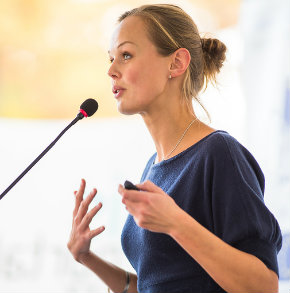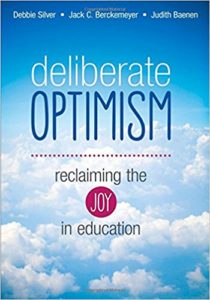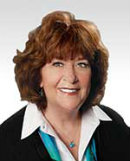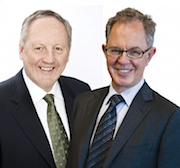What Teachers Can Do to Strengthen the Profession
Teachers in Oklahoma and Kentucky recently took a stand about what they believe is right for education in their states. Across the country educators are speaking up about the essentials they and their students need to elevate teaching and learning.
It is good to see teachers take the lead in discussing reasonable allocation of funds, increased autonomy, more time for professional development, and more attention to retaining an experienced, high quality workforce.
Andy Hargreaves and Michael Fullan (2013) have described the need for teachers to increase their professional capital individually and collectively – improving the practice of teaching, achieving higher pay, and gaining more empowerment.
In the business capital view, teaching is technically simple. Teaching doesn’t require rigorous training, hard work in universities, or extensive practice in schools. In this view, teaching can be learned over six weeks in the summer, as long as you are passionate and enthusiastic. Imagine if we said that about our doctors or architects or engineers….
The opposite stance toward teaching is a professional capital approach. In this approach, teaching is hard. It requires technical knowledge, high levels of education, strong practice within schools, and continuous improvement over time that is undertaken collaboratively, and that calls for the development of wise judgment.” – Hargreaves and Fullan
Countries such as Finland, Singapore, and Canada have begun to build professional capital by focusing on the development of the whole teaching profession rather than on removing the few at the bottom who are incompetent or unethical.
So how do American teachers persuade our country to do the same? Do we need to hire a Madison Avenue public relations firm – or call upon school district PR folks to make our case?
According to the National School Public Relations Association (NSPRA), educational public relations programs assist in interpreting public attitudes, identifying and helping shape policies and procedures in the public interest, and carrying on involvement and information activities which earn public understanding and support.
They manage media communications, promote positive news about schools, and schedule regular relationship building community activities. They take responsibility for managing the district’s internal and external messages sent to the public.
Strong school public relations programs are a great asset, for sure. But they are only as good as we let them be. A lot depends on how well we manage our own professional behavior.
Our Own Worst Enemies?

Gossiping about colleagues and administrators, making negative public statements about students and/or our schools, spending time at school taking care of personal business or doing personal posting on social media, and failing to adequately communicate with parents are but a few of the ways we can undermine our professional capital.
Uniting behind a cohesive voice may be far better than hiring an outside agency to make our case. Collectively we have more power, but teachers can start individually or with a local group of like-minded colleagues to improve our status and increase our influence. Grass roots movements are more genuine and have greater authority than outside agencies.
Talk WITH the Parents
The 2013 Gallup Poll on Education found that the adults surveyed thought teachers today should be more caring and interested in students. What?!

Most of us spend a great deal of time connecting with our parents through phone calls, newsletters, e-mail, parent portals, etc., but how much of that communication is one-sided? We are eager to share our rules, procedures, and observations about behavior and performance, but how much of the exchange is actual conversation?
Ten or 15 minutes of genuine dialogue, designed to deepen our connections and communicate our caring and our commitment to our students, can make all the difference to a parent, especially for families who aren’t familiar with navigating the school system.
Doing a better job of listening to student families as well as offering them concrete strategies for helping their kids can significantly improve not only our status with them but also their perception of the educational system serving their children.
Parents and families are an enormous part of the success equation for students, and – from a resources perspective – their support is crucial for electing education-friendly political decision makers.
Connect with the Community
Beyond school- or district-wide initiatives to elicit business sponsors, individual teachers can invite community leaders and influencers into the classroom as guest speakers and volunteers.
In order to fully appreciate what we do every day, taxpayers need to visit and interact with students and teachers occasionally. Nothing builds support like having community leaders actively engaged with classrooms, student projects, and school activities.
Teachers can make a positive impact by showing up at community events (ideally in school regalia), participating in neighborhood activities, and most importantly, speaking up for local schools at every opportunity. When is the last time you volunteered to be a guest speaker or provide student guest speakers for an area club or organization?
Tell Your Story
Much of our power lies in the track record of what we have already done for the kids in our communities. There are few veteran teachers who cannot recall at least one student’s life they significantly changed for the better.

We should better communicate to our critics that teaching is a craft that must be honed over time. Most of what we do to optimize our time with students is invisible to the public eye. How can we fault the public for not knowing about what we do if we don’t tell them?
One award-winning Texas school leader, Todd Nesloney, has written a book, Stories from Webb, that chronicles his experiences and those of his teaching colleagues at Webb Elementary. He hopes to start a movement that validates teachers’ voices as they talk about their own professional work. What a powerful addition our stories can be to public relations for educators!
So what do you think? Do teachers need to hire a PR firm, media consultants, or other outside help? Or can we begin to build more professional capital in our own classrooms, schools, and communities?
I would like to hear from you about your ideas and about anything you are involved with that is helping to promote the positive aspects of education and those who have chosen this profession.
Resource:
Hargreaves, A., & Fullan, M. (2013). The power of professional capital: With an investment in collaboration, teachers become nation builders. Journal of Staff Development (JSD), 34(3), 36-39.
_______________________________








































This is a great piece, Debbie, on such an important topic. As for projects, my next book (due out this fall) is called Sharing Your Education Expertise with the World: Make Research Resonate and Widen Your Impact. I hope to help with one problem I see in the education field: Stakeholders communicate most fully in silos. This means they usually communicate with people in the same role (e.g., teacher to teacher) and/or at the same site (e.g., working within the same school) when sharing knowledge, seeking knowledge, making decisions, and collaborating. Those in other silos do the same (like education researchers and professors, who publish in academic journals not necessarily read by teachers). I believe the more teachers share their expertise with others and the more they interact with other stakeholders’ findings (creating a cross-silo dialogue), the more everyone will know about the teaching profession, how difficult it is, the many amazing things teachers do to help kids learn, etc. Another book I read (that I love!) that’s related to this topic is by Celine Coggins (the founder of Teach Plus, which helps teachers impact policy) and it titled How to Be Heard: Ten Lessons Teachers Need to Advocate for Their Students and Profession. It’s a great one! I believe this push for teachers to share and interact with other ed. professionals (as well as parents and community, as you covered) is dire. Thanks for this important piece.
Well said, Jenny! I can’t wait to read your new book, and I’m ordering Celine Coggins’ book now. Thanks for the added information and support.
Thanks! You’ll love Celine’s book! :-)
Don’t forget retired teachers who will help you because they still love the profession, writing groups who want to share their books with kids and maybe even teach, and other groups in your community like Delta Kappa Gamma, an international teacher group, American Association of University Women, and even church groups. Our community Rotary Club gives teacher grants of $300 each–all you have to do is apply. Let these groups help you out and they will sing YOUR praises. Let your city councils know about exciting projects and you might even get a City Proclamation Plaque. Write press releases for the paper. Use FB and Twitter, etc. Thanks for letting us know about your book!
So true! Such great points and ideas! :-)
Thanks for the added ideas, Mary! I’m a member of Delta Kappa Gamma, and I should have thought of that myself! You are so correct that we ALL need to stick together. And retired teachers don’t have to worry about “political fall-out” — an added bonus!!